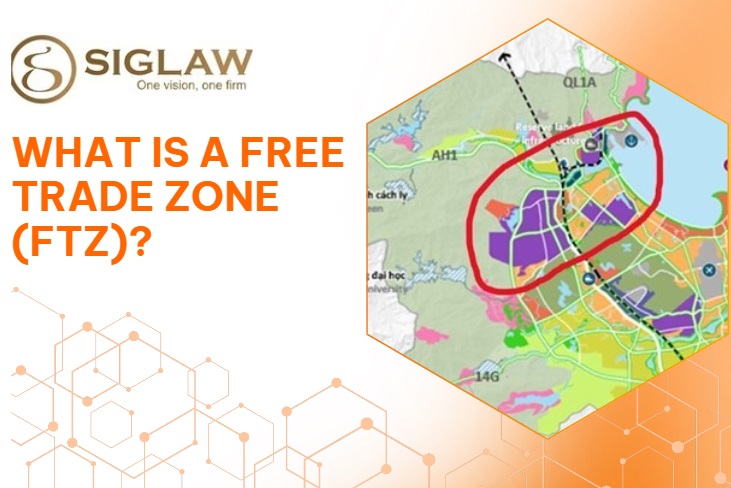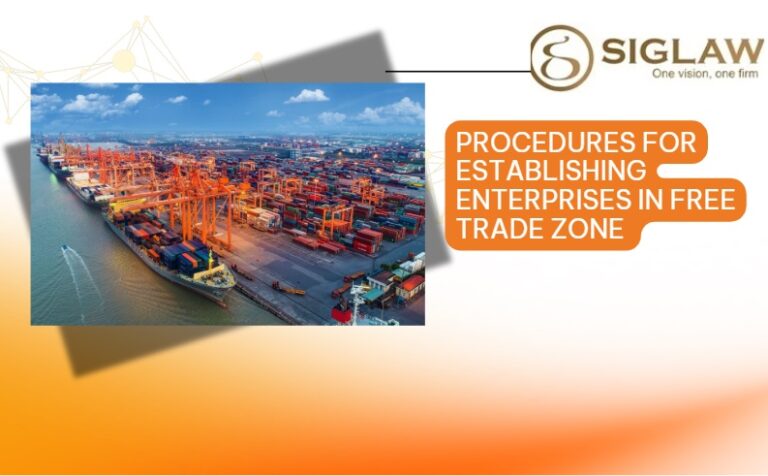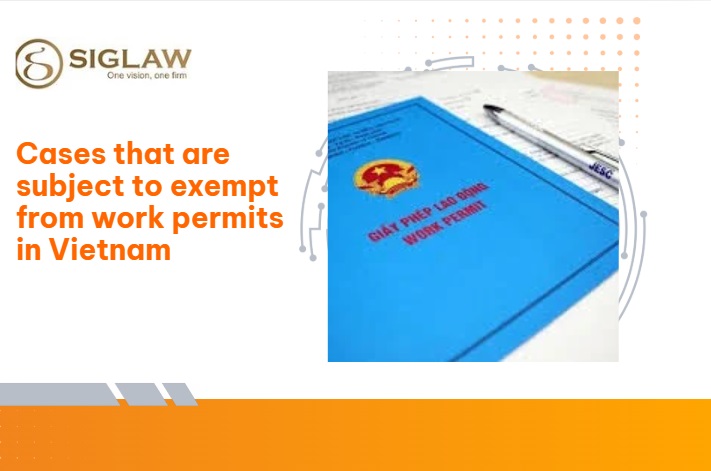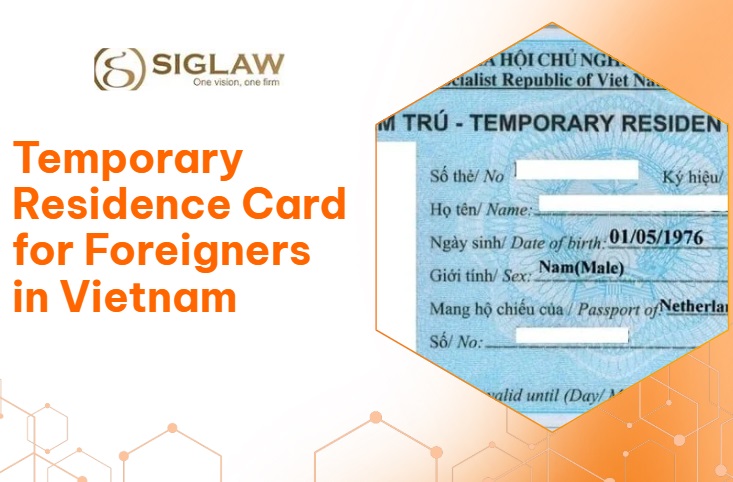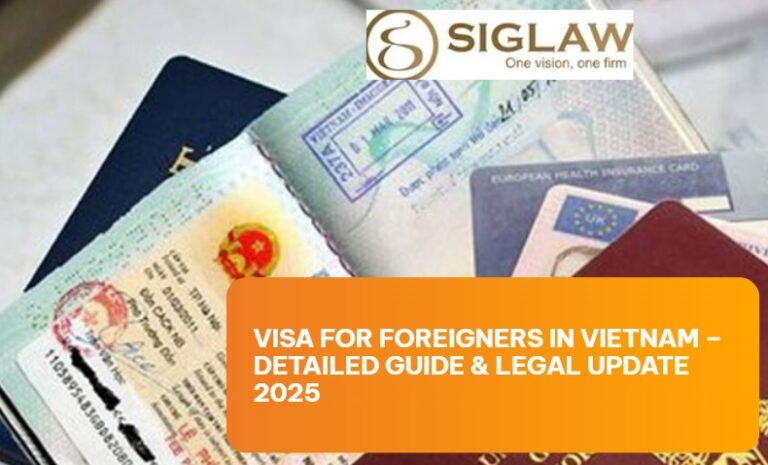On August 7, 2025, the Government issued Decree No. 219/2025/NĐ-CP, introducing a series of reforms in the management of foreign employees working in Vietnam. The key highlights of this new regulation focus on simplifying work permit (WP) procedures, expanding exemptions, and enhancing digitalization to facilitate both enterprises and employees. This marks a significant step forward in helping FDI enterprises attract and retain high-quality foreign personnel more efficiently.
Overview and Scope of Application
Effective from August 7, 2025, Decree No. 219/2025/NĐ-CP officially replaces previous regulations on the issuance, reissuance, and exemption of work permits (WPs) for foreign employees working in Vietnam. These new provisions directly impact:
- Foreign employees currently working in Vietnam under labor contracts, intra-corporate transfers, or in capacities such as investors, experts, and technicians;
- Enterprises and organizations employing foreign workers, including FDI enterprises, joint ventures, branches, and representative offices.
The scope of regulation not only covers procedures for new WP issuance but also extends to notification requirements, issuance of criminal record certificates, cases eligible for work permit exemption, and periodic reporting obligations of employers.
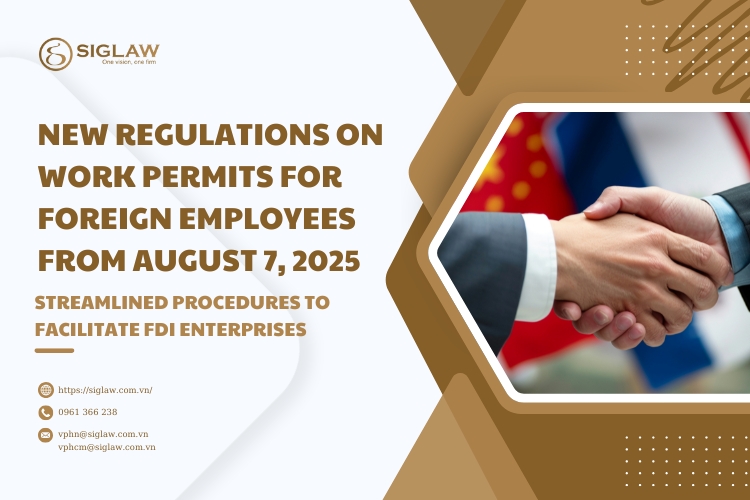
Key Reforms Introduced by Decree No. 219/2025/NĐ-CP
Streamlined Process and Reduced Processing Time for Work Permits
The Decree consolidates the previously separate stages of work permit approval into a single, unified process, significantly shortening the processing time. Specifically, the two separate steps — (i) explaining the need to employ foreign workers, and (ii) submitting the WP application — are now merged, with a combined processing time of around 10 working days (previously totaling up to 20 days: 15 + 5).
In addition, the requirement to advertise job vacancies for Vietnamese candidates before hiring foreign employees has been relaxed. Instead of the mandatory 15-day posting on the national employment portal, enterprises now only need to publish a recruitment notice for at least 5 days, using any suitable recruitment platform. This simplification of administrative procedures enables FDI enterprises to save time and expedite the onboarding of foreign personnel for their projects.
Technology Integration and Process Modernization
The acceleration of digital transformation in administrative procedures is one of the key highlights of the new regulation. The entire process — from registering the demand for foreign employees, submitting work permit (WP) applications, to reporting the employment of foreign workers — can now be conducted through the National Public Service Portal under a one-stop electronic system.In addition, the new regulation introduces greater flexibility regarding the workplace of foreign employees. If a foreign employee works for a single company but performs duties in multiple provinces or cities, the enterprise is no longer required to amend or reissue the work permit upon such changes in work location.These improvements significantly simplify compliance and enhance management efficiency for FDI enterprises, reducing the need for repeated adjustments or reissuance of permits in cases of minor operational changes.
Expansion of Work Permit Exemption Cases
Decree No. 219/2025/NĐ-CP introduces broader exemptions from work permit (WP) requirements, creating favorable conditions for short-term foreign experts working in Vietnam. Specifically, foreign nationals holding managerial, executive, expert, or technical positions who come to work in Vietnam for less than 90 days within a year are now exempt from obtaining a WP. Previously, the law only allowed WP exemption for short-term assignments under 30 days per visit and not exceeding 90 days in total per year, which was often impractical. Under the new rule, with a single threshold of under 90 days per year, FDI enterprises can more easily invite foreign specialists for short-term missions — such as machinery installation, technical support, or internal training — provided that they still notify the competent authorities about the foreign employee’s engagement in accordance with regulations.
Clarification of Conditions and Simplification of Documentation Requirements.
The Decree also relaxes professional qualification requirements for foreign workers. The definitions of “expert” and “technical worker” are now more clearly outlined, with simplified documentation requirements, particularly for experts working in priority development sectors such as finance, science, technology, and innovation. Another notable improvement is the integration of the criminal record check (Judicial Record Certificate) into the WP application process. Instead of requiring the foreign worker to apply separately for a Judicial Record Certificate in Vietnam — which used to be time-consuming — the licensing authority can now digitally access judicial data to verify the applicant’s background.This streamlined process reduces paperwork, saves time, and minimizes administrative burdens for both enterprises and foreign employees.
Practical Advantages and Challenges in Implementation
The reforms introduced under Decree No. 219/2025/NĐ-CP bring significant benefits for FDI enterprises in hiring and managing foreign employees — including faster procedures, fewer administrative documents, and broader exemptions from work permit requirements. However, businesses must also pay close attention to the new compliance obligations that accompany these conveniences.For example, even when a foreign worker is exempt from a work permit for short-term assignments under 90 days, the employer must still submit a prior notification to the competent labor authority. Likewise, the transition to an online submission system requires companies to be prepared with digital signatures and registered electronic accounts.
In addition, some technical requirements remain in effect or have been newly introduced — such as the need for a valid medical certificate and accurate job classification according to Vietnam’s national occupational codes — which, if overlooked, may result in applications being returned or delayed. During the early stages of implementation, local authorities may apply the new rules inconsistently, so FDI companies’ HR departments should closely monitor guidance from local labor agencies.
To fully leverage the advantages of the new regulations while ensuring strict compliance, FDI enterprises are encouraged to engage Siglaw’s work permit, judicial record, and international HR consulting services.With extensive experience in handling hundreds of work permit applications nationwide, Siglaw’s expert team assists businesses in preparing compliant documentation, submitting applications smoothly through the online system, and advising on permit exemptions and notification obligations under the new framework. Siglaw’s professional support enables enterprises to save time and resources, while maintaining full legal compliance with Vietnam’s latest labor regulations for foreign employees.


